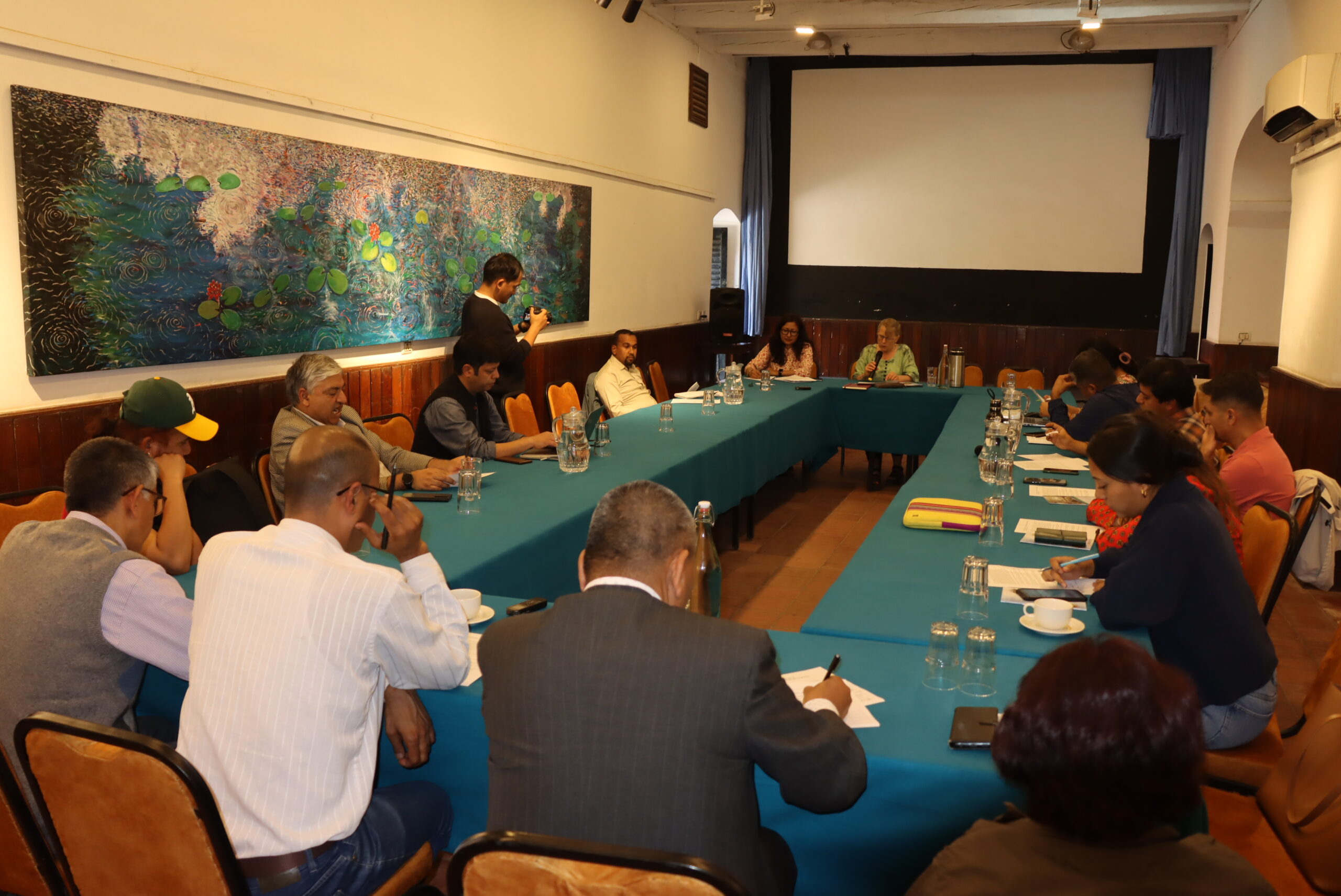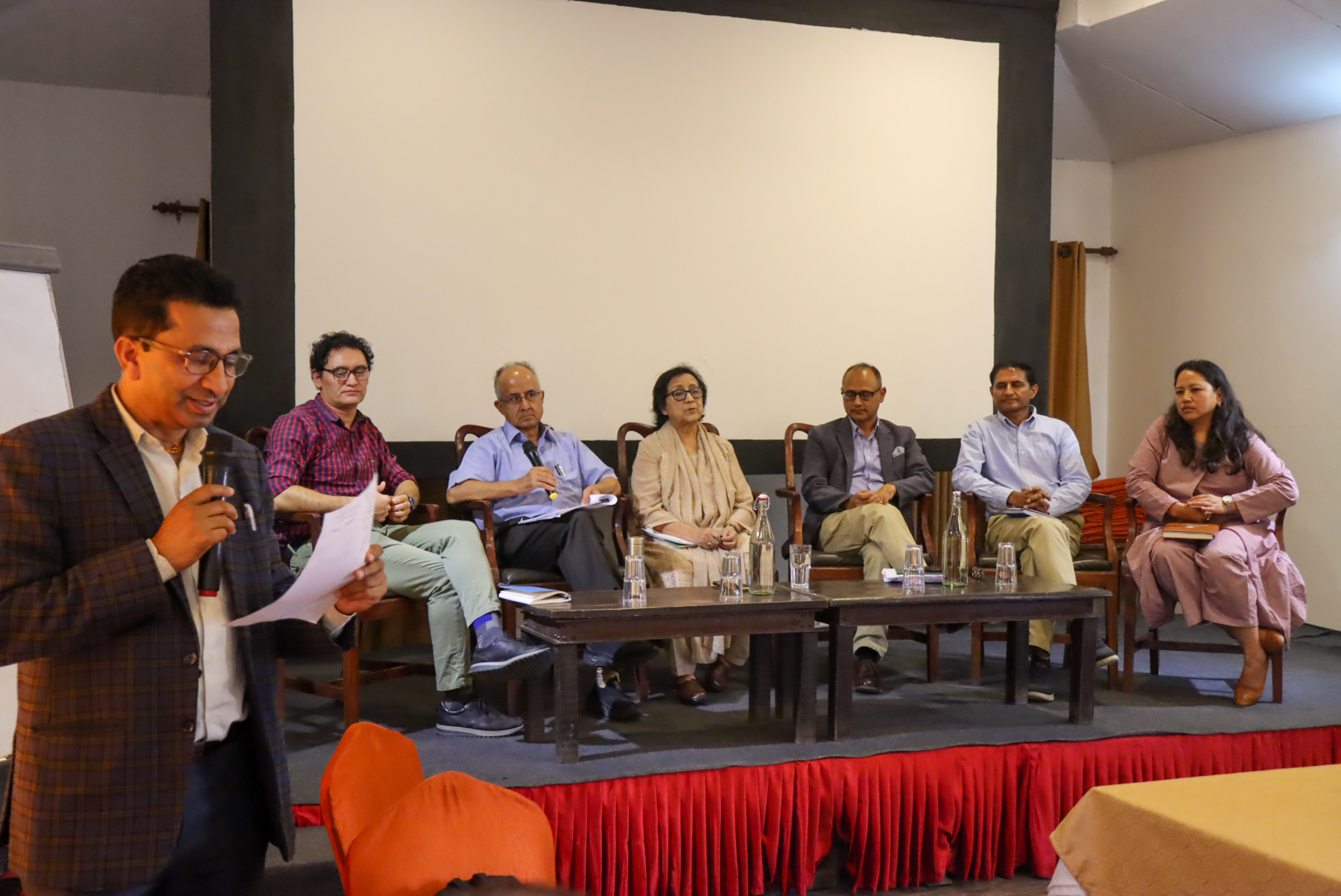Southasia Institute of Advanced Studies (SIAS) and ForestAction in Nepal, with contributions from the University of Edinburgh (UoE), Centre for Ecology Development and Research (CEDAR), Indian School of Business in India and Institute for Study and Development Worldwide (IFSD) in Australia organised the workshop on ‘Knowledge Politics in Natural Resource Management: Reimagining Resource Governance in South Asia’ on November 17, 2021. The workshop was a part of the project ‘Learning to Leave No One Behind: Equitable and Sustainable livelihoods in natural resource governance (Nepal and India) – developing an international research cluster’ funded by UoE under GCRF-SFC. The purpose of the workshop was to develop cross-country understanding on knowledge politics surrounding governance and management of natural resources in diverse contexts such as biodiversity conservation and urban water management drawing cases from Nepal and India. The workshop also intended to expand informal network on these agenda. About 50 participants from research and academia, civil society organizations and government officials joined the virtual workshop.
In the beginning, Clare Barnes from UoE highlighted about the LLNOB project and the project’s interest in developing research links and capabilities, leading to develop a cluster between academics, researchers, practitioners and policy makers developing insights on how interventions in natural resource governance can best learn, reflect, adapt and exchange insights to support achievement of SDGs and ensure they ‘leave no one behind’. Following that, there were four presentations: specific presentation on the theme protected areas by Dr. Sudeep Jana Thing, ForestAction Nepal and Curtin University and broader knowledge politics on the same theme by Neema Pathak Broome, member of Kalpavriksh and ICCA, India. Another two presentations were case specific presentation on the theme urban water management by Dr. Anushiya Shrestha, SIAS and broader knowledge politics on the same theme by Dr. Vishal Narain, Management Development Institute (MDI) India.
The workshop had discussions over three major questions, a) Which/whose knowledge are influencing natural resource management policies and institutions and in which ways, and which/whose knowledge are being excluded? b) What efforts are being made to bridge knowledge traditions and with what effects? And c) How might we better share experience and learning in knowledge politics across countries and sectors? The discussion moderated by Naya Sharma Paudel, ForestAction Nepal focused on certain battles in relation to what the knowledge is currently dominating governance, the State centric top-down agency and the kind of knowledge hegemony active within the operators of the State. Participants shared about the need of going through the policies or laws enacted previously, prior to the introduction of radical laws citing the examples of FRA act in India. There was a focus on continuously exploring diverse knowledge on inclusive research experiences to influence transformative development.
Lastly, Dr. Hemant Ojha from IFSD in his commentary shared about the cross-cutting observations and commented on the presentations and discussions. He stressed that the research to become more engaged and concerned should not just be driven by intellectual curiosity or by an idea of scholastic academic sort of orientation but concerned with the problems of people and at the same time be able to deconstruct. Also he mentioned that the participatory solutions that are available at the forefront of transformative reforms should be identified and supported by science.




